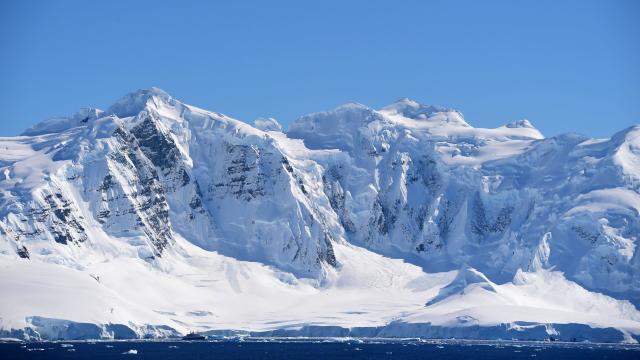Spending over a year in the bleak desolation that is Antarctica might change your brain for the worse, according to new research out this month. It seems to show that polar explorers who lived for 14 months at an Antarctica research station experienced brain shrinkage, likely as a result of their isolation and boredom. But the effects on their actual health and cognition were mild and probably temporary.
The study’s authors used MRI to scan the brains of eight members of an expedition team before they endured a long stay at the German-run research station Neumayer III. During their mission, the team periodically took tests of their cognition and memory and provided blood samples that allowed the study authors to measure their levels of a protein important for brain health called brain-derived neurotrophic factor (BDNF). When they returned back to civilisation, they had their brains scanned again.
Ultimately, compared to themselves pre-expedition as well as a control group of volunteers matched in age and sex, the explorers’ brains appeared to have less grey matter on average following their trip. The shrinkage was most apparent in the hippocampus, an area of the brain key to memory and cognition. Their average levels of BDNF also dropped during the trip and didn’t improve significantly even after one-and-a-half months back home.
[referenced url=” thumb=” title=” excerpt=”]
The study’s findings, published in the New England of Medicine, aren’t the first to suggest that long bouts of isolation can change the brain. But practically all of this work has involved animals, according to the researchers.
Given the harsh, unforgiving conditions of the expedition, such as having to live and work in a single place alongside only a small group of people, it’s likely that the trip altered the plasticity of their hippocampus, meaning its ability to make new neural connections, the authors said. Another culprit for the brain shrinkage might have involved what the researchers call “environmental monotony”—aka the boredom that would arise from staring outside and seeing nothing but pure white snow day after day.
Of course, an eight-person study is incredibly small, so any of its conclusions should be taken with caution. And the authors aren’t claiming that these researchers have been irrevocably damaged by their experience. During the trip, for instance, they did perform slightly worse on tests of their spatial reasoning and selective attention, but not in other aspects of cognition.
Lead author Alexander C. Stahn, now a researcher at the Perelman School of Medicine at the University of Pennsylvania, told Science News that the effects of on the hippocampus are likely temporary, provided the scientists returned back to a life filled with social interactions and interesting things to see.
Still, since people will continue travelling to and from Antarctica for long periods of time, the findings are definitely worth keeping in mind and exploring further. They might even prove relevant for the rare few people who might travel as far as Mars in the future—perhaps the only similarly scientific, months-long mission that would be even more isolating.
